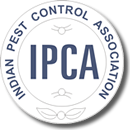Integrated Pest Management is crucial for the sustainability and food safety for the Food manufacturing & retail industry
By VIREN MERCHANT
IPM & Public Health Professional, Director -PCAMB, India.
Pests being a part & parcel of our world, are drawn to food matter, and it can create serious problems in food handling facilities -manufacturing & retail. Therefore it is imperative for all food-related facilities to have a comprehensive Integrated Pest Management (IPM) program in place to maintain the highest standards required in food safety.
Integrated Pest Management is a vital component of Food Safety management. Though sterilization, good food-handling / manufacturing practices, and contamination prevention are key concerns in food safety, pest management today is an important aspect of keeping food-producing facilities safe & sustainable.
A major concern with pests in food-making facilities is the threat of contamination. Further, the damage of raw materials, produce, packaging and brand value, is a serious consideration for all food brands across the globe. The objective of food producers is to manufacture and market food products at a profit.
If a product is not acceptable to the consumer, or if the government / authorities find the product unacceptable or unfit for sale, there will be no profit.
Pest management professionals are vital partners for food managing facilities in their endeavour to safeguard their product / product & support profitability of the business.
Pest management companies that embrace the best standards in IPM have raised the professionalism and technical abilities to secure the industry’s role as protectors of food.
IPM for Food handling facilities
A food facility’s sanitation is only as successful as their IPM program. The IPM must address both the interior and the exterior of the facility, along with managing incoming supplies (raw materials, other input materials). An IPM program is designed to prioritise in keeping pests out of food facilities, i.e preventive measures, rather than taking measures once pests have already entered. IPM emphasizes on a judicious use of insecticides pest prevention approach and focuses on facility maintenance and sanitation.
Commercial food establishments have to comply with the high standards enforced by various government agencies, global food standard authorities, third party food safety audits, etc.
An essential part of establishing what the client expects of pest control services is for the pest control company to communicate with the client. This will give an idea on importance of pest control services to the food facility & manage client expectations of IPM services.
The usual major pests impacting food facilities are Cockroaches, Rodents, Flies, Ants & Birds that can directly impact food & property. Mosquitoes that could find harbourage in food facilities are known vectors that result in deadly communicable diseases and could have serious impact on employee health.
An effective IPM program for a food facilities includes -
Inspection – property pest audit;
Pest prevention – source elimination & restricting pest access;
Pest identification & analysis;
Treatment strategy – judicious pesticide usage;
Monitoring;
Documentation & client communication;
The sustainability of the IPM program are a result of the individual facility’s regular assessments, which has to cover all the areas in and around the facility, as well as evaluate the processes, historical data & conditions that impact the IPM program. This must be performed at a periodicity depending upon the criticality of the site, or at a time when a pest population likely impact’s the hygienic safety of the food facility. This assessment is helpful in monitoring the effectiveness of the IPM program, updating pest prevention measures & guarding against insecticide resistance by pests. The results of these assessments must be recorded & used to further develop and update an IPM program.
It is evident that in today’s world where food safety is priceless, Integrated Pest Management services are an integral part of hygiene and sustainability considerations for a food facility.
The Indian Pest Control Association will be holding its 51st annual national conference on 17th & 18th August 2018 in Gurugram, India and will be deliberating on public health pest management issues.









